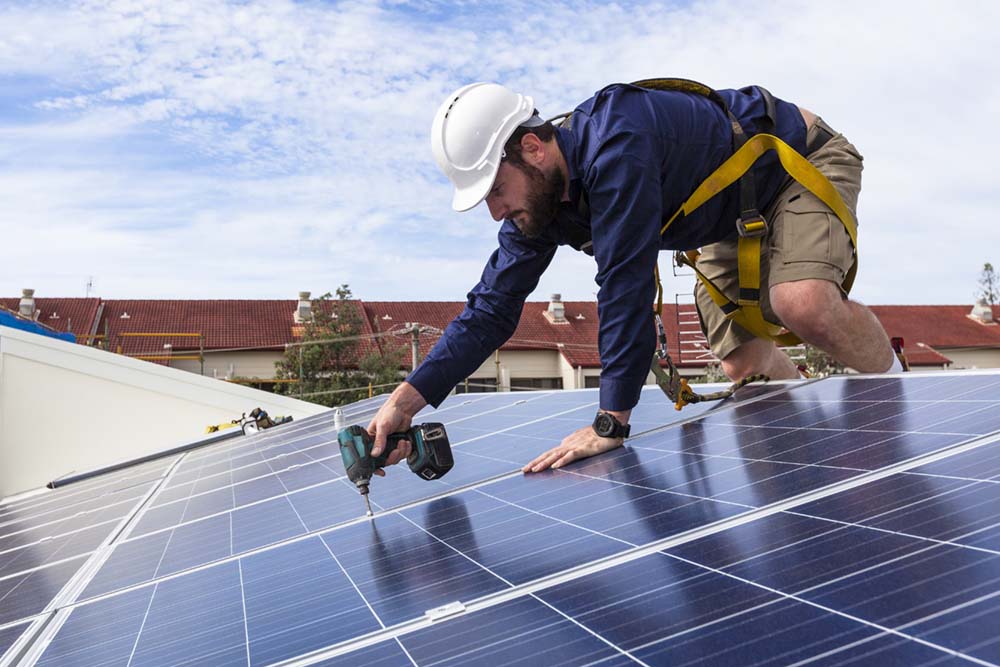 In the realm of real estate, creating an eco-friendly home isn't just about reducing your carbon footprint — it can also enhance property value, decrease utility costs, and contribute to a healthier environment. Here are some practical steps to save energy and reduce waste, turning your home into a sustainable haven.
In the realm of real estate, creating an eco-friendly home isn't just about reducing your carbon footprint — it can also enhance property value, decrease utility costs, and contribute to a healthier environment. Here are some practical steps to save energy and reduce waste, turning your home into a sustainable haven.
- Energy-Efficient Appliances Invest in energy-efficient appliances. Look for the Energy Star label when purchasing devices like refrigerators, washing machines, and dishwashers. They consume less energy, resulting in lower electricity bills and reduced environmental impact.
- Smart Thermostats Install smart thermostats that learn your habits and adjust temperatures accordingly. These devices optimize heating and cooling, reducing energy consumption while maintaining comfort.
- LED Lighting Switch to LED light bulbs. They last longer and use less energy than traditional incandescent bulbs, making them an easy and cost-effective way to save energy at home.
- Proper Insulation Ensure your home is well-insulated. Proper insulation prevents heat loss in winter and keeps the house cool in summer, reducing the need for excessive heating or air conditioning.
- Solar Panels Consider installing solar panels to harness renewable energy. While the initial investment can be significant, solar panels can substantially reduce electricity bills in the long run.
- Water Conservation Install low-flow faucets and showerheads to minimize water wastage. Additionally, fix leaks promptly to prevent unnecessary water loss.
- Waste Management Implement recycling systems at home. Separate recyclables from general waste to minimize the amount sent to landfills.
- Composting Start a composting system for organic waste. Composting not only reduces waste but also produces nutrient-rich soil for gardening.
- Energy Audit Consider conducting an energy audit for your home. Professionals can identify areas where energy is being wasted and provide recommendations for improvement.
- Landscaping Opt for native plants in your garden. They require less water and maintenance compared to exotic species, contributing to a more sustainable landscape.
- Smart Home Technology Explore smart home systems that enable better control and monitoring of energy usage. From smart plugs to energy monitoring devices, these technologies help optimize energy consumption.
- Educate and Involve Educate your household members on energy-saving practices. Encourage everyone to participate in reducing waste and conserving resources.
- Government Incentives Check for local government incentives or rebates for implementing eco-friendly upgrades in your home. There might be financial support available for certain energy-efficient improvements.
- Regular Maintenance Keep up with regular maintenance of appliances, HVAC systems, and insulation to ensure they operate at maximum efficiency.
By implementing these strategies, you not only contribute to a more sustainable environment but also create a more attractive and cost-efficient home in the real estate market. Sustainable homes are becoming increasingly desirable, and these efforts can potentially increase the value of your property while reducing your ecological footprint.
A commitment to sustainability in real estate is not just a trend but a responsible choice that benefits both homeowners and the planet. Start small, implement changes gradually, and witness the positive impact on your home, finances, and the environment.
Compliments of Virtual Results